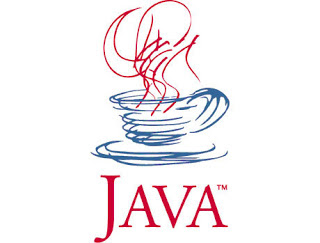JAVA
Java Programming for Beginners
First time programmers will find this course an excellent choice for learning
programming using the Java Programming language. This course helps delegates
understand the significance of the Java programming language. With this knowledge,
delegates can develop skills in the areas of object-oriented programming. By the end of
class, delegates will be able to program simple Java applets and read and edit Java
technology source code.
Java Programming for Advanced Users
This course provides programmers who are familiar with C or C++ to learn how to
develop Java applications and applets. What this course can provide is an exhaustive
coverage of the Java language and Core Classes from the Java Development Kit (JDK),
with a variety of practical exercises to reinforce the use of the object-oriented approach.
The course teaches students the syntax of the JavaTM language, object-oriented
programming in Java, creating graphical user interfaces, as well as using the Java event
model to handle events and catch exceptions. Gain practical experience through out all
the major aspects of the design and development of Java programs. You will also learn
file input/output (I/O), threads and networking in Java. The exercises are designed to
encourage the use of object-orientation to develop reusable components as well as
demonstrate the effective partitioning of larger systems. Upon completion of the course,
participants will have both the theoretical knowledge and practical experience to use Java
to design quality software systems.
Java Programming for Developers
This course provides programmers who are familiar with C or C++ to learn how to
develop Java applications using JDBC and RMI. What this course can provide is an
exhaustive coverage of the distributed computing using Java RMI and CORBA, with a
variety of practical exercises to reinforce the use of the object-oriented approach. The
course also teaches students the syntax of the Bean programming in Java, creating Bean
Model, as well as using the Java event model to handle events and catch exceptions. Gain
practical experience through out all the major aspects of the design and development of
Bean programs. You will also learn Server side programming Servlets. The exercises are
designed to encourage the use of object-orientation to develop reusable components as
well as demonstrate the effective deployment of Web Applications in Servlets. Upon
completion of the course, participants will have both the theoretical knowledge and
practical experience to use Java to design quality software systems.
Enterprise JavaBeans
The Java 2 Platform, Enterprise Edition, or J2EE, defines a set of components and builds
a service-oriented infrastructure into the platform to automatically support and manage
components. These specifications are Enterprise JavaBeans (EJBs). Participants will learn
how to create J2EE compliant EJBs and how to combine them into robust enterprise
applications. Also covers these essential topics: Session and Entity Beans, the Container
framework in which EJBs function, transaction and security management features.
Participants will use the standard J2EE Reference Implementation server in lab exercises.
This course also deals with Exception handling by Bean and Security issues.
Java 2 Mobile Edition (J2ME)
Java 2 Platform, Micro Edition (J2ME) aims to adapt Java for the wide spectrum of
consumer products ranging from small devices such as palm pilots, mobile phones, to
home appliances such as TV, refrigerator, etc. Although J2ME is still using the same Java
language as the other editions, it has to reduce the size of the Java runtime environment
in order to run in devices that have various memory and power constraints. It achieves
this by removing unnecessary classes from the Java 2 Platform, Standard Edition and
augmenting it with new classes that are suitable for small devices.
Subscribe to:
Post Comments (Atom)






yh thank you man
ReplyDelete